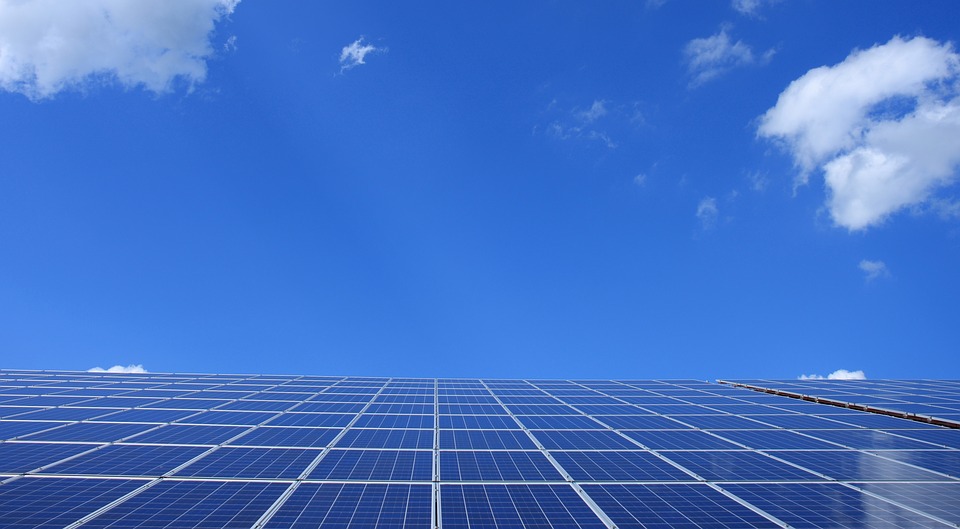Federal Inflation Bill Could Boost Renewable Energy Transition
Clean energy advocates applaud tax credits for new infrastructure, electric vehicles.
Wisconsin advocates say historic investments in clean energy passed by the U.S. Senate could be the catalyst the state needs to move more quickly on clean energy goals.
The U.S. Senate passed the Inflation Reduction Act Sunday, moving along the largest federal clean energy investment in U.S. history. The $370 billion dollars in funding will go toward renewable energy infrastructure programs and tax credits for electric vehicles among other climate policies. Senate Democrats have said the legislation will help the country cut greenhouse gas emissions by 40 percent from 2005 levels by 2030.
Democratic U.S. Sen. Tammy Baldwin applauded the legislation Sunday, saying working families in Wisconsin “need lower costs.”
“Our legislation will lower energy costs for consumers, and will make investments to boost the production of Made in America clean energy that will create jobs and take on the climate crisis,” Baldwin said in a press release.
U.S. Sen. Ron Johnson joined all of his Republican colleagues in voting against the legislation and said the spending package will make inflation worse.
“This is a Green Energy Fantasy that will more likely drive the cost of energy up rather than down,” Johnson said in a press release.
Chelsea Chandler, climate, energy and air program director for Clean Wisconsin, said the historic investment is an opportunity for Wisconsin to take action on the clean energy plan released by Gov. Tony Evers‘ administration earlier this year.
Chandler said tax credits created for energy storage, new wind and solar infrastructure and electric vehicles will help these technologies be adopted more quickly in Wisconsin. She also applauded investments to help homes and buildings transition away from gas-powered furnaces to electric heat pumps.
Chandler said Johnson’s comments about the impact on consumer energy costs presents what she called a “false choice.” She said opponents of clean energy adoption have long argued that the cost of transitioning from traditional energy sources is too high. But Chandler said Wisconsinites are already facing the growing costs of climate change.
“We are already experiencing extreme weather events, flooding, damage to infrastructure, tons of health impacts related to extreme heat,” she said. “If we don’t make these investments now, we’re gonna be stuck with a really huge bill later, and all of those devastating consequences.”
Chandler said the legislation also sets aside funding for “climate-smart” agriculture projects, like sequestering carbon into soils and reducing methane emissions on livestock farms.
Michael Vickerman, policy director for RENEW Wisconsin, said one of the most important aspects of the legislation is the commitment to a policy for 10 years. He said previous clean energy incentives have been much shorter lived, which created what he describes as a “roller coaster dynamic” for the industry.
Vickerman said the other highlight of the legislation is the promotion of American manufacturing of clean energy infrastructure. He said the amount of some tax credits are tied to how many components of a project are American made. And Vickerman said Wisconsin is well positioned to be a part of a swell in domestic manufacturing, from transportation companies in trucking and at Great Lakes ports to companies already making parts for the clean energy industry.
“We have a wind turbine tower manufacturer, for example, that could scale up. We have companies that specialize in electronic controls for batteries and inverters,” Vickerman said. “They may not make the panels themselves, for example, or the turbine blades, but they make a lot of other components that go into clean electricity generation. So I think Wisconsin will reap its fair share of the national investment in clean energy manufacturing.”
The House is expected to take up the bill next, possibly as soon as the end of this week. Even if they move quickly to pass the legislation, Vickerman said it will take a while before the funding trickles down to the state level. But he agrees with Chandler that the package sends a strong signal to state and local government officials that the transition to clean energy will need to be a part of conversations on infrastructure and economic development moving forward.
Listen to the WPR report here.
Clean energy advocates say federal funds could be catalyst Wisconsin needs to move toward renewables was originally published by Wisconsin Public Radio.



















